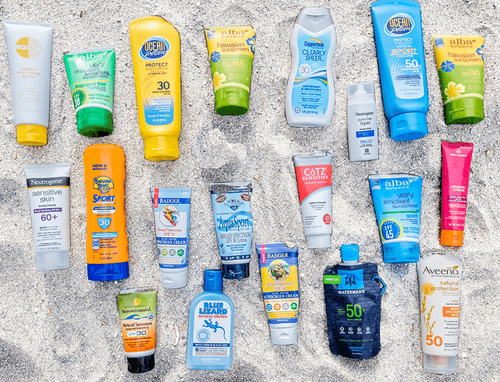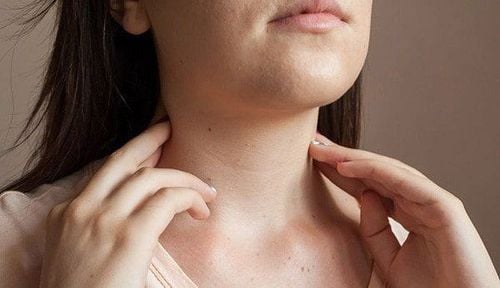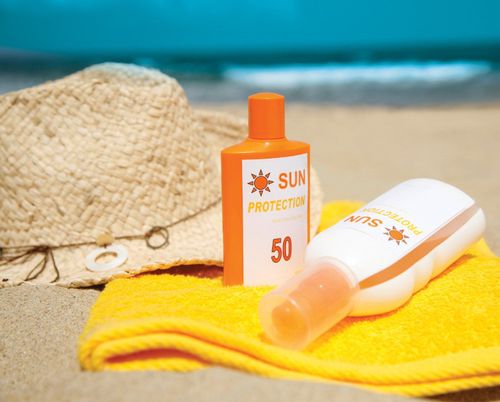This is an automatically translated article.
Loss of skin elasticity is a natural part of the aging process that everyone goes through. Loss of skin elasticity causes skin to look saggy, wrinkled, or rough. In fact, there are many methods to help increase skin elasticity. In this article, we will cover the causes of loss of skin elasticity and provide possible solutions.
1. Why does skin elasticity change?
Skin is the largest organ of the body. It is also your shield against harmful elements. As people age, their skin naturally begins to show the effects of time.
In addition to the loss of collagen, the skin also begins to lose elastin, a protein that gives the skin its ability to stretch and firm again. Elastin is found in the connective tissue of the dermis of the skin.
Environmental and lifestyle factors can exacerbate and accelerate the loss of skin elasticity. These include:
Sun exposure Air pollution Poor nutrition Smoking Rapid and heavy weight loss can also cause skin loss of elasticity. This article will provide 13 suggestions to improve or restore skin elasticity.
2. Food supplement collagen
Collagen is a protein found in the connective tissues of the skin. There is some evidence that orally hydrolyzed collagen can be absorbed through the intestines and delivered to the skin via the bloodstream.
In one small study, oral collagen peptides, vitamin C, Hibiscus sabdariffa extract, and Aristotelia chilensis (Maqui berry) extract were given to study participants for 3 months. Significant improvement in skin firmness and elasticity in the participants was observed, starting at 4 weeks.
A separate study found that a nutritional drink containing collagen and other ingredients, such as hyaluronic acid, significantly increased skin elasticity.
While these results still require further evidence, it is important to remember that in each study, other beneficial ingredients were also used. More data are needed on collagen supplements to determine their true ability to increase skin elasticity.
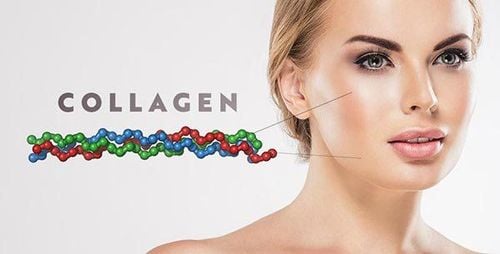
Collagen là một loại protein được tìm thấy trong các mô liên kết của da
3. Retinol and retinoids
Retinol is a form of vitamin A. It can be found in over-the-counter skin care products, such as eye care serums and face creams. It is not as strong as a prescription retinoid. There are data sources indicating that topical retinol combined with vitamin C is effective in increasing facial elasticity.
Prescription retinoids help boost collagen production in the skin. These include tretinoin and retin-A. Numerous studies have shown the effectiveness of prescription retinoids in reducing and reversing the effects of aging on the skin.
4. Hyaluronic Acid
Hyaluronic acid is a natural substance found mainly in the connective tissue of the skin. Its job is to maintain moisture and keep the skin soft.
Hyaluronic acid in the skin gradually becomes depleted due to ultraviolet (UV) exposure and aging. Using nutrients in the form of concentrated serums or creams containing hyaluronic acid can help the skin regain its natural elasticity. Taking hyaluronic acid supplements may also be beneficial.
5. Genistein isoflavones
Genistein, an isoflavones in soybeans, is a phytoestrogen. Phytoestrogens are plant-based compounds that act similarly to estrogen in the body. Genistein has been shown in studies to increase skin elasticity when taken by mouth. It may also be beneficial when applied topically.
More research is needed to determine the applications of genistein in improving skin elasticity and overall skin care.

Genistein tăng độ đàn hồi của da khi dùng bằng đường uống
6. Hormone Replacement Therapy (HRT)
Although the data are far from conclusive, research has found that different types of HRT benefit skin elasticity that is slowly being lost due to aging and menopause. These include:
Transdermal estrogen Transdermal estrogen plus vaginal progesterone Oral estrogen plus vaginal progesterone HRT can be a helpful treatment option but it's not for everyone.
7. Witch Hazel Extract
Witch hazel is a popular at-home skin care product. It is also a common ingredient in cosmetics and skin care preparations.
An in vivo study found that witch hazel extract, especially Hamamelis virginiana, was effective in regulating elasticity, reducing wrinkles, and increasing overall skin firmness.
8. Cocoa Flavonoids
One study found that daily intake of cocoa flavonoids, a compound found in chocolate, helps to increase facial skin elasticity and reduce wrinkles. Cocoa flavanols are dietary flavonoids naturally found in cocoa beans.
Not all chocolates contain high levels of cocoa flavanols. Look for chocolate that contains about 320 milligrams of cocoa flavanols, which is the amount used in the study.
9. Laser treatments
Laser treatments are used to treat many diseases. One study looked at the effectiveness of combining two laser therapy techniques - non-ablative fractional laser (NAFL) and intense pulsed light therapy (IPL) - performed on the same day in study participants.
These procedures have a positive effect on skin tone and new collagen production. Research shows that the combination of these therapies significantly increases skin elasticity and tone. Other studies have found positive results from using fractional lasers on the skin.
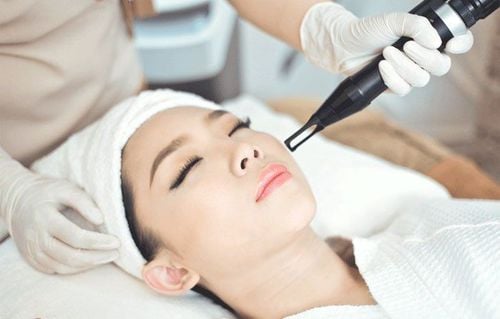
Liệu pháp laser giúp tăng độ đàn hồi và sắc thái da đáng kể
10. Dexpanthenol Cream (Panthoderm)
Dexpanthenol (pantothenic acid) is a moisturizer used to treat rough, scaly, or dry skin. Studies have found it beneficial for maintaining and increasing skin elasticity.11. Peel skin
Chemical peels or chemical peels are procedures performed by dermatologists to resurface and restore the skin. There are three levels of peels: Light, medium and deep.
Chemical peels can increase skin elasticity and reverse the effects of aging, as well as increase collagen production. You will discuss with your dermatologist to be able to determine the most suitable option.
12. Dermabrasion
Dermabrasion is an intensive exfoliation technique used to remove the outer layers of skin. It is done by a dermatologist and is usually done on the face.
13. Platelet-rich plasma injection
One small study found that injecting platelet-rich plasma (PRP) directly into the lower eyelid increased skin elasticity in that area. Some injections are required to be repeated monthly over a 3-month period. The injections are reported to be minimally invasive and painless.
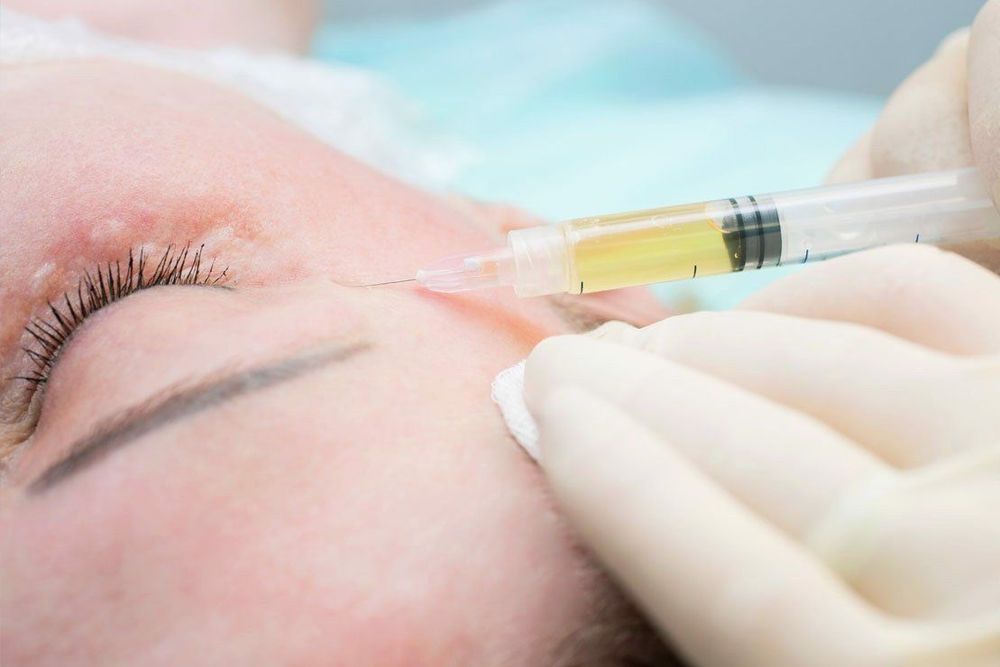
Tiêm huyết tương giàu tiểu cầu (PRP) trực tiếp vào mí mắt dưới làm tăng độ đàn hồi cho da ở khu vực đó
14. Body contouring surgery
Significant weight gain can cause the skin to lose its elasticity. After losing weight, the skin may not be able to tighten, leading to excess, loose skin. This is more likely to happen if you lose more than 100 pounds of weight, or about 45kg.
In some cases, excess skin can be removed surgically. Typical areas of the body removed include the skin of the abdomen, arms, and thighs.
15. Some tips to prevent loss of skin elasticity
Lifestyle changes are the best way to limit skin elasticity loss.
Limit sun exposure
Excessive exposure to UV rays reduces skin elasticity and causes premature aging of the skin. Using sunscreen is the first way to stop this process. Using sunscreen won't improve elasticity, but it will prevent further damage.
Add antioxidants to the diet
A diet rich in antioxidants, such as vitamin C, vitamin E, carotenoids and lycopene can help maintain skin elasticity and overall health skin.
It's important to remember that even the healthiest diet is not enough to combat the effects of the sun. Taking an antioxidant supplement or eating an antioxidant-rich diet is a good start, but it will not replace sun protection.
Quit smoking
Smokers have less skin elasticity than non-smokers. Smoking narrows blood vessels, reducing blood flow and limiting the skin's ability to deliver nutrients and oxygen. The toxins in tobacco have also been shown to damage elastin and collagen fibers. Quitting smoking helps reduce harm not only to the skin but also to the rest of the body.
16. Summary
Over time, the skin will naturally lose some of its elasticity due to the aging process. Sun exposure and unhealthy lifestyle habits, such as smoking, can accelerate this process. There are many successful treatments to increase skin elasticity. Lifestyle changes, such as applying sunscreen, can help slow and minimize its effects.
Please dial HOTLINE for more information or register for an appointment HERE. Download MyVinmec app to make appointments faster and to manage your bookings easily.
Reference source: healthline.com




